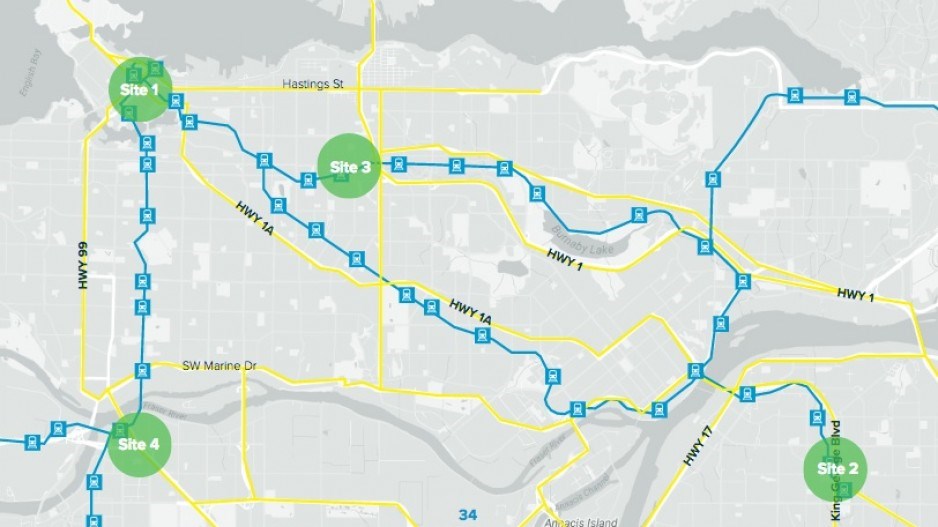From the delivery of giant cactus plants to promises of giant tax incentives, cities across North America were scrambling last fall to stand out from their competitors in a bid to woo Amazon.com, Inc. (Nasdaq:AMZN).
The tech giant’s efforts to seeking a second home — dubbed HQ2 — attracted 238 proposals before 20 cities were shortlisted last month.
While Vancouver was ultimately culled from the competition, bid documents released this week by the Vancouver Economic Commission (VEC) reveal a strategy based on its geographic position, access to talent and livability.
“People talked about our proximity as a potential weakness but there’s not really much we could do to relocate ourselves out to the East Coast,” said James Raymond, VEC’s manager of research and analysis.
“We wanted to turn our proximity into a strength and I truly think it is.”
The Vancouver team crunched the numbers on travel time for Amazon execs flying between Seattle and the East Coast and found the company would save 90,000 hours in flights compared with New York.
It would also reduce its CO2 output by 5,400 tons.
The City of Vancouver’s relatively compact size pushed it to align with regional partners.
“We’ve done this previously with the Winter Olympics and the inter-municipal business licence program, so regionally everyone really pulled together because it was obviously it was in everyone’s best interest,” Raymond said.
In addition to the downtown core, the regional bid proposed sites in East Vancouver’s Broadway Tech neighbourhood near Rupert Skytrain Station, the riverside area surrounding Bridgeport Station in Richmond and Surrey’s Innovation Boulevard, touching three Skytrain stations.
While bids like the one from New Jersey were offering as much US$7 billion in tax incentives, Vancouver steered clear of what Raymond described as a potential “race to the bottom.”
“Vancouver can’t offer direct incentives to companies. It’s really not our philosophy. We’d rather invest our incentives into our region, into our infrastructure so all companies can benefit,” he said.
“We wanted to focus on putting out a really compelling bid together that also at the same time was very competitive with any of the other cities.”
The bid documents highlighted what it called Canada’s “fast-track immigration policies.”
It noted the Global Skills Strategy that launched last summer could bring in high-skilled foreign workers within two weeks, while the Startup Visa program offered permanent residency to tech entrepreneurs and investors.
Issues over housing affordability, which have dogged the region for years, have become further exacerbated recently.
Raymond said there was no point in avoiding that conversation in the bid and the documents emphasized that all three levels of government have been introducing measures to cool Vancouver’s white-hot market.
The bid also claimed Vancouver has three times the number of homes for sale under US$500,000 compared with Seattle.
Raymond said he was limited in what he could say following VEC’s discussions with senior Amazon staff but he felt confident Vancouver’s housing affordability was not the reason why the regional proposal did not move onto the shortlist.
And since the bid was submitted last fall, the VEC has seen a “noticeable uptake” in interest from foreign companies looking at Vancouver, according to Raymond.
“It accelerated a trend that was happening anyway,” he said.
“We’ve got a ton of interest from other companies that are also looking at that proposition and thinking, ‘Hey, maybe we should put Vancouver on the shortlist last time.’”




